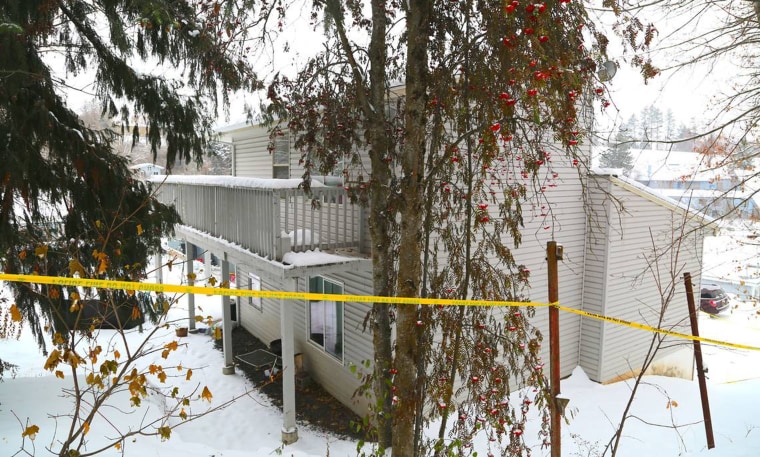FBI is building a 3D model of the King Road house for the trial

Idaho prosecutors want to present an FBI-constructed 3D model of the home where four college students were found brutally stabbed to death in 2022 at the suspect’s trial this summer.
The request was part of a series of filings made public Tuesday, and comes after the three-story King Road house in Moscow, located on the edge of the University of Idaho campus, was demolished a year after the quadruple killings.
“This model will consist of three levels which can be removed by level to show the interior layout of the residence,” prosecutors wrote in the filing. “The interior layout will depict wall and door placements (i.e. no furniture, human depictions, etc.).”
The FBI’s reconstruction is “based on depictions, documentation, and measurements taken at the scene prior to demolition,” and would “aid witnesses in their testimony,” prosecutors said.
Families of two of the victims had previously sought to postpone the razing of the home, arguing that the University of Idaho should wait until after the trial was completed in the event more evidence must be collected from the scene.
But Latah County prosecutor Bill Thompson had said the condition of the home was substantially different in the months following the killings and investigators believed they had gathered enough information to create an exhibit of the scene for trial.
The latest motions being considered by Ada County Judge Steven Hippler are part of the prosecution’s strategy to hobble the defense at Bryan Kohberger’s trial. Kohberger is accused of fatally stabbing housemates Madison Mogen, 21; Kaylee Goncalves, 21; Xana Kernodle, 20; and Kernodle’s boyfriend, Ethan Chapin, 20, in November 2022.
Prosecutors are also asking the judge to prohibit the defense at trial from presenting testimony on the neurological and psychiatric evaluation of Kohberger; bar the defense from providing alibi evidence that isn’t given directly by Kohberger; and disallow the defense from offering “alternative perpetrator” evidence or argument without first proving that it is relevant.

Kohberger was a resident of nearby Pullman, Washington, and was then a doctoral student at Washington State University.
A not guilty plea on four counts of first-degree murder and burglary was entered on his behalf in May 2023. Authorities have not publicly confirmed a motive but are expected to present DNA evidence, details about cellphone use and security videos to connect Kohberger, 30, to the crime.
Defense lawyers have said he would often take late-night drives and that cellphone tower data would show that he had been doing so miles away when the four students were fatally stabbed in the middle of the night.
Kohberger faces the death penalty if found guilty at his trial, which is set to begin Aug. 11.
The latest filings follow a victory for the prosecution last week when Hippler denied several defense motions to suppress key DNA and other evidence.
Hippler found that there was no constitutional violation, as the defense maintained, when law enforcement without a warrant took trash from outside the home of Kohberger’s parents in Pennsylvania and obtained DNA that tied him to a knife sheath found at the Idaho crime scene.
The judge’s decision allows for cellphone and email records, surveillance footage, Kohberger’s past Amazon purchases and DNA evidence to be presented at trial.





